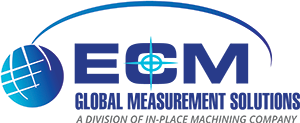CNC Machine Calibration Services
The machine tool industry is developing quickly. Initiatives to improve efficiency, and reduce scrap and production costs have created the need to understand manufacturing processes better than ever before. Knowing the capability of machine tools before metal cutting is the foundation of any machining process. Historically, machine tool rotary axes were confined to large machines, or small indexing tables. As the introduction of smaller 5-axis machines and mill-turn designs increases, so do the challenges associated with their measurement. Both linear axes and rotary axes are subject to errors relative to the intended positioning. This can be due to machine installation errors, collisions or general wear in use. Errors in either the angular positioning accuracy or alignment of the axes can produce significant defects in finished parts. A well-calibrated CNC machine can produce parts that meet the required specifications, have consistent quality, and require less rework, which ultimately leads to a reduction in production costs.
The Importance of Calibrating Your CNC Machine:
Accuracy: Calibration ensures that the CNC machine is cutting to the correct dimensions. This is important because even small deviations can accumulate and result in significant errors over time. Calibrating the machine ensures that it is accurate and precise.
Consistency: A calibrated CNC machine will produce consistent results, which is critical for parts that need to fit together or have specific tolerances. A machine that is not calibrated can produce parts that vary in size or shape, leading to problems during assembly.
Efficiency: A calibrated CNC machine can operate at optimal speeds, resulting in faster production times and reduced cycle times. This can have a significant impact on production costs, especially for high-volume production runs.
Maintenance: Regular calibration can help identify issues early and prevent costly breakdowns or repairs. It also ensures that the machine is operating at maximum efficiency, reducing wear and tear on components.
Compliance: In many industries, there are regulations and standards that require precision and accuracy in manufacturing. Calibrating the CNC machine ensures compliance with these standards and regulations.
CNC Error Mapping & Compensation
The XR20-W rotary axis calibrator works in conjunction with Renishaw XL80 and XM laser systems. The XR20-W consists of an integrated angular retroreflector mounted on a precision servo-controlled axis. The angular position of this axis, and the optics relative to the main body housing, is controlled by a very high accuracy encoder system with the scale directly machined onto the main bearing. Using a Renishaw XR20 Rotary Axis Calibrator coupled with a XL80 linear measurement interferometer, ECM is able to measure all geometric axis in a machine independently and with extreme accuracy. Machine accuracy can then be improved by making targeted alterations to the machine’s assembly using the data to apply error compensation.
Periodic measurement of a machine’s performance capability is the foundation of process control, providing a known, stable environment in which manufacturing is to be performed. Quantifying process capability reduces costs and improves efficiency.

